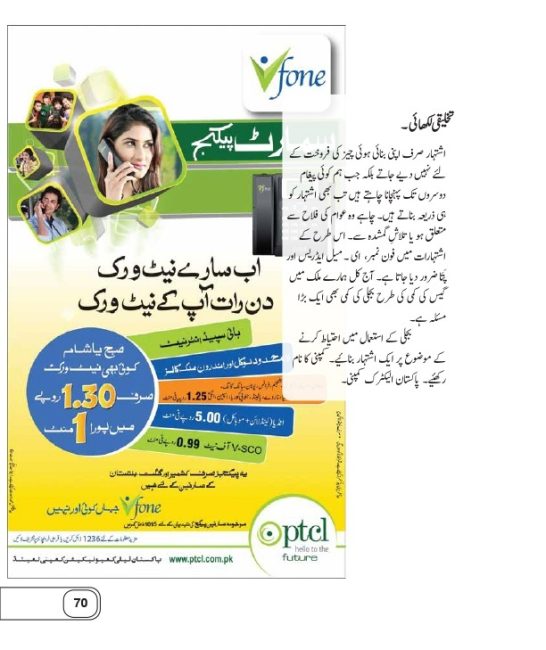Common Core Standards English Class 4
Students should be able to:
(as per Common Core Standards)

| S No. | Targets | Chapters |
| 1. | Reading: Literature Key Ideas and Details CCSS.ELA-LITERACY.RL.4.1 | Yes, you Can! Chips |
CCSS.ELA-LITERACY.RL.4.2 Determine a theme of a story, drama, or poem from details in the text; summarize the text. | Unnoticed Chips | |
CCSS.ELA-LITERACY.RL.4.3 Describe in depth a character, setting, or event in a story or drama, drawing on specific details in the text (e.g., a character’s thoughts, words, or actions). | Wizard of Nose | |
| 2. | Craft and Structure CCSS.ELA-LITERACY.RL.4.4 Determine the meaning of words and phrases as they are used in a text, including those that allude to significant characters found in mythology (e.g., Herculean). | All chapters cover |
CCSS.ELA-LITERACY.RL.4.5 Explain major differences between poems, drama, and prose, and refer to the structural elements of poems (e.g., verse, rhythm, meter) and drama (e.g., casts of characters, settings, descriptions, dialogue, stage directions) when writing or speaking about a text. | All chapters cover | |
CCSS.ELA-LITERACY.RL.4.6 Compare and contrast the point of view from which different stories are narrated, including the difference between first- and third-person narrations. | All chapters cover | |
| 3. | Integration of Knowledge and Ideas: CCSS.ELA-LITERACY.RL.4.9 | Yes, You Can! Unnoticed |
| 4. | Range of reading and level of text complexity By the end of the year, read and comprehend literature, including stories, dramas, and poetry, in the grades 4-5 text complexity band proficiently, with scaffolding as needed at the high end of the range. | All chapters cover |
| 5. | Reading: Informational Text Key Ideas and Details: CCSS.ELA-LITERACY.RI.4.1 Refer to details and examples in a text when explaining what the text says explicitly and when drawing inferences from the text. | Yes, you Can! Chips |
CCSS.ELA-LITERACY.RI.4.2 Determine the main idea of a text and explain how it is supported by key details; summarize the text. | Let’s draw | |
| 6. | Integration of Knowledge and Ideas:CCSS.ELA-LITERACY.RI.4.9 Integrate information from two texts on the same topic in order to write or speak about the subject knowledgeably. | Chips Mousseron |
| 7. | Reading: Foundational Skills Phonics and Word Recognition: CCSS.ELA-LITERACY.RF.4.3 Know and apply grade-level phonics and word analysis skills in decoding words. | Most chapters cover |
CCSS.ELA-LITERACY.RF.4.3. A Use combined knowledge of all letter-sound correspondences, syllabication patterns, and morphology (e.g., roots and affixes) to read accurately unfamiliar multisyllabic words in context and out of context. | Wizard of Nose Chips Mousseron | |
| 8. | Fluency CCSS.ELA-LITERACY.RF.4.4 Read with sufficient accuracy and fluency to support comprehension. | All chapters cover |
CCSS.ELA-LITERACY.RF.4.4 A Read grade-level text with purpose and understanding. | All chapters cover | |
CCSS.ELA-LITERACY.RF.4.4 B Read grade-level prose and poetry orally with accuracy, appropriate rate, and expression on successive readings. | All chapters cover | |
CCSS.ELA-LITERACY.RF.4.4 C Use context to confirm or self-correct word recognition and understanding, rereading as necessary. | All chapters cover | |
| 9. | Writing CCSS.ELA-LITERACY.W.4.1 | All chapters cover |
| CCSS.ELA-LITERACY.W.4.1.A Introduce a topic or text clearly, state an opinion, and create an organizational structure in which related ideas are grouped to support the writer’s purpose. | All chapters cover | |
CCSS.ELA-LITERACY.W.4.1.B Provide logically ordered reasons that are supported by facts and details. | All chapters cover | |
CCSS.ELA-LITERACY.W.4.1.D Provide a concluding statement or section related to the opinion presented. | All chapters cover | |
CCSS.ELA-LITERACY.W.4.2 Write informative/explanatory texts to examine a topic and convey ideas and information clearly. | All chapters cover | |
CCSS.ELA-LITERACY.W.4.2.B Develop the topic with facts, definitions, concrete details, quotations, or other information and examples related to the topic. | All chapters cover | |
CCSS.ELA-LITERACY.W.4.2.C Link ideas within categories of information using words and phrases (e.g., another, for example, also, because). | All chapters cover | |
CCSS.ELA-LITERACY.W.4.2.D Use precise language and domain-specific vocabulary to inform about or explain the topic. | All chapters cover | |
CCSS.ELA-LITERACY.W.4.2.E Provide a concluding statement or section related to the information or explanation presented. | All chapters cover | |
CCSS.ELA-LITERACY.W.4.3 Write narratives to develop real or imagined experiences or events using effective techniques, descriptive details, and clear event sequences. | All chapters cover | |
CCSS.ELA-LITERACY.W.4.3.D Use concrete words and phrases and sensory details to convey experiences and events precisely. | Curiosity Chips | |
| 10. | Production and Distribution of Writing: CCSS.ELA-LITERACY.W.4.5 With guidance and support from peers and adults, develop and strengthen writing as needed by planning, revising, and editing. (Editing for conventions should demonstrate command of Language standards 1-3 up to and including grade 4 here.) | All chapters cover |
| 11. | Speaking and Listening Comprehension and Collaboration: CCSS.ELA-LITERACY.SL.4.1 | All chapters cover |
| CCSS.ELA-LITERACY.SL.4.1.A Come to discussions prepared having read or studied required material; explicitly draw on that preparation and other information known about the topic to explore ideas under discussion. | All chapters cover | |
CCSS.ELA-LITERACY.SL.4.1.B Follow agreed-upon rules for discussions and carry out assigned roles. | All chapters cover | |
CCSS.ELA-LITERACY.SL.4.1.D Review the key ideas expressed and explain their own ideas and understanding in light of the discussion. | All chapters cover | |
| 12. | Presentation of Knowledge and Ideas:CCSS.ELA-LITERACY.SL.4.4 | All chapters cover |
CCSS.ELA-LITERACY.SL.4.6 Differentiate between contexts that call for formal English (e.g., presenting ideas) and situations where informal discourse is appropriate (e.g., small-group discussion); use formal English when appropriate to task and situation. (See grade 4 Language standards one here for specific expectations.) | All chapters cover | |
| 13. | Language: Conventions of Standard English: CCSS.ELA-LITERACY.L.4.1 | All chapters cover |
| CCSS.ELA-LITERACY.L.4.1.A Use relative pronouns (who, whose, whom, which, that) and relative adverbs (where, when, why). | Most chapters cover | |
| CCSS.ELA-LITERACY.L.4.1.B Form and use the progressive (e.g., I was walking; I am walking; I will be walking) verb tenses. | My Pretty Fragrant Diary | |
| CCSS.ELA-LITERACY.L.4.1.D Order adjectives within sentences according to conventional patterns (e.g., a small red bag rather than a red small bag). | Curiosity | |
| CCSS.ELA-LITERACY.L.4.2.B Use commas and quotation marks to mark direct speech and quotations from a text. | Most chapters cover | |
| CCSS.ELA-LITERACY.L.4.2.C Use a comma before a coordinating conjunction in a compound sentence. | If I were a…? | |
| 14. | Vocabulary Acquisition and Use: CCSS.ELA-LITERACY.L.4.4 | Color of the Planets |
| CCSS.ELA-LITERACY.L.4.4.C Consult reference materials (e.g., dictionaries, glossaries, thesauruses), both print and digital, to find the pronunciation and determine or clarify the precise meaning of keywords and phrases. | Most chapters cover |

How useful was this post?
Click on a star to rate it!
Average rating 0 / 5. Vote count: 0
No votes so far! Be the first to rate this post.